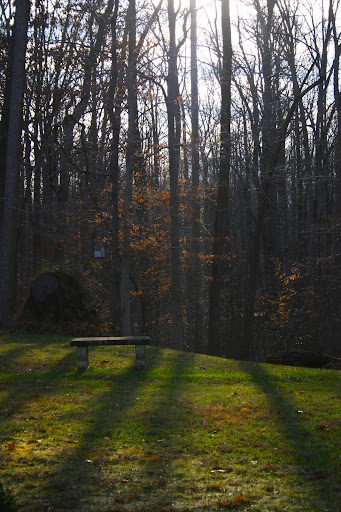
Has it always been so that books have been lauded as a good way to educate, inform, inspire and entertain? I think so. Perhaps novels were not always so enthusiastically received, but that's largely changed in these times.
Television, on the other hand, is largely reviled, even as we all watch it. I read somewhere that 100 years from now we may well remark on this time as the great lost years, much as gin soaked - and sucked up - the life out of those who lived during the Industrial Revolution. I'm sure I book-marked that idea, but where? It's an intriguing premise. I wish I could tell you where I found it.
Both books and television serve as an escape, but we applaud the reader's escape, not the TV-gazer's. Perhaps the difference has to do with pictures. Not the single picture that adorns the frontispiece of novels (which usually look nothing like what you imagine of the hero or heroine), but the moving pictures which tell the story in movies and television, and thereby remove it from our imagination.
Books work with words and ideas, and require the interaction of the reader's imagination. We read; we think; we picture the story or the ideas in our imagination and it becomes real to us, and can be made real in our actions and by what we do as the result of what we have read and thought.
Movies do not require the same interaction. They require some attention, perhaps, but act upon us, rather than with us. I watch the recorded action as an observer and only imagine that I am a part of what I have observed merely because I have observed it.
Maybe the Biblical injunction against making images is about what happens when we set those images in front of a people that then stops creating, or even co-creating. Art doesn't make me just want to sit down in front of the picture, it inspires me to view things differently, to think new thoughts, or to change my surroundings or even myself. I begin to think that the difference between prohibited 'images' and art lies in where the life is. Is the life in the people viewing it or reading it? Or is the image itself held out as life, or held out as what life ought to be, somehow, if only we were right?
Years ago, north of Barcelona, I met an artist who hosted a conference on "kitsch" - which she defined as the attempted depiction of ultimate good, or heaven, even. Something bad happens when you try to capture that much reality in a single dimension. It turns on you and becomes not only dead, but deadening. "Virtual reality" promises more than reality - right before it robs you of any reality you otherwise had. Then it shows that it's dead and drab. No life; no colour.
I begin to suspect that something similar is happening on facebook. It promised more than reality: instant access to friends, family and a virtual community, any time and any place. But the easy re-connection with old friends now takes more and more time and gives less and less. We're like junkies, our faux-community requires ever-increasing facebook hits.
Facebook presents only the illusion of life. It gathers information about my internet habits by which to tempt me with ads for products I can buy to make my life complete. My friends and family gradually fall silent under the pressure of coming up with something clever to say or finding the perfect photo to show our perfect lives. Meanwhile, we post photos of puppies and kittens, slogans, and links to articles that are helpful, infuriating, or shocking. We link to people we don't know who've written about thoughts we no longer think for ourselves.
Life is face-time, not facebook. Ultimately, life is what happens outside of facebook.
This might be one 'book' that doesn't make the cut.
Meanwhile, if Downton Abbey were a book, I'd be reading it. . . .






